“Diluvion is full of intrigue…”
Video games exist for many purposes; to allow us to visit other worlds, live out roles that we could otherwise only imagine and to be a part of incredible stories and journeys. Diluvion is a game which attempts to do all of this, and it brings to the table something entirely different. In an underwater world housing the remnants of a drowned Earth, you play the role of a budding submarine captain. Setting out in search of treasure and answers from the past, this is your first ever voyage around these dark and often dangerous oceans. Developed by Arachnid Games and published by Gambitious Digital Entertainment, adventure awaits you in the deep…
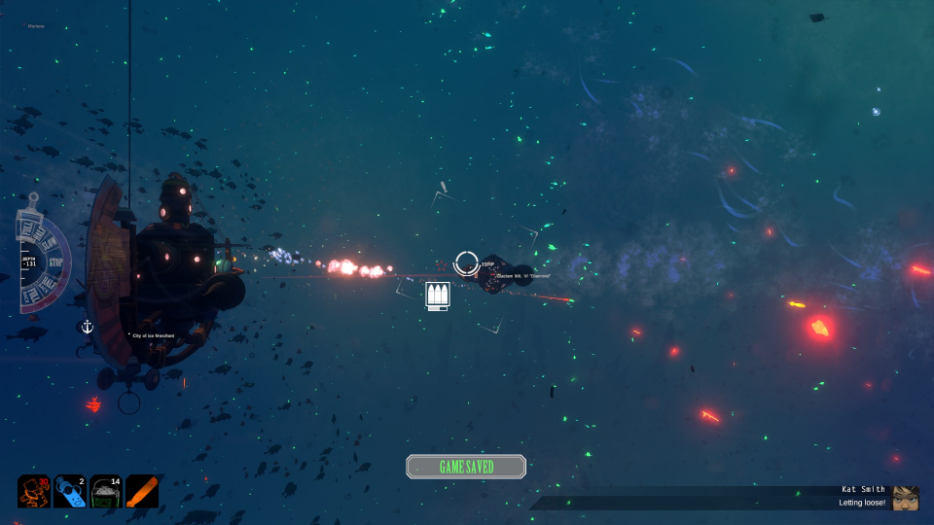
The Diluvion lore implies that the planet was submerged beneath the oceans by the Gods, who were angry with the greedy and hostile nature of the human race. Sealed under an impenetrable layer of thick ice, humanity has been reduced to living out their lives in the hostile environments of the deep oceans, but there is still hope. One God who believed humanity may be worthy of a second chance has hidden a treasure in the deep which can return the humans to their former glory. Naturally, nobody has yet been able to find or obtain it. Whilst the game edges you in this direction with its linear questline, the oceans are yours to explore, and many more treasures and mysteries await those who are brave enough to seek them.
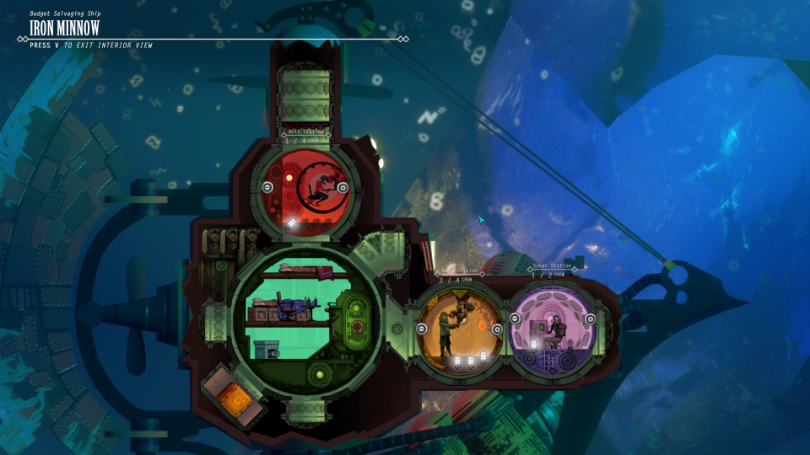
Diluvion is full of intrigue in this way, and the execution of its story elements is fantastic. Heavily inspired by the works of Jules Verne, the stylisations of the game and the backstories behind every character, dwelling and landmark you find are remarkably full of padding and detail. As you travel the oceans, you will frequently meet its inhabitants in bars, homes and other meeting places, and each character fits to the world both in terms of appearance and attitude. When you meet new members of your mismatched yet talented crew, this is particularly apparent. Slightly stereotypical but fitting in nature nonetheless, your hashed together squad feels like something of a family as you progress in the game, providing that none of them meet an unfortunate fate along the way. The crucial point is that everyone within Diluvion’s story fits, and that is one half of the glue of this experience…
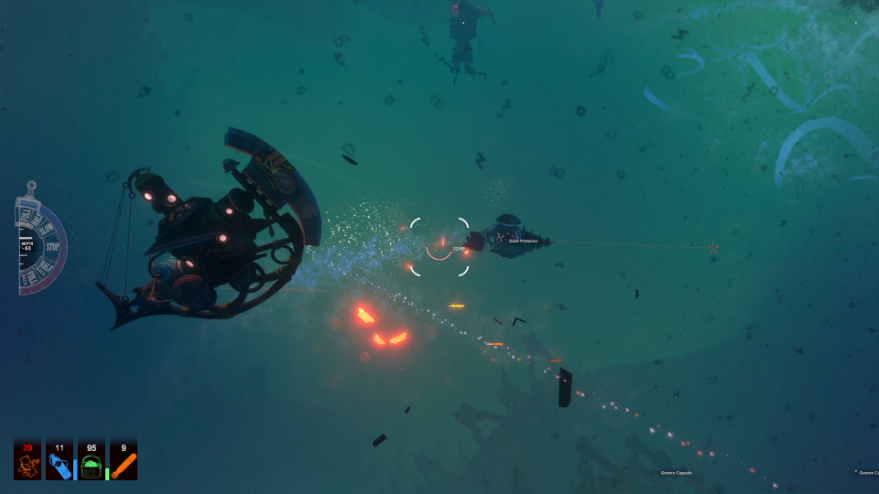
The other half of this glue then is the game’s appearance and atmosphere. The game looks and sounds genuine, with a steampunk-style filter laid over the top of this. You sub is a prime example of this, whichever model you choose. Structures are raggedly held together by plates of rusted steel and their shapes are as wacky as their questionable integrity. Even the way that characters dress feels right for the world despite a somewhat historical undertone to this imagery. The game also flits between 3D and 2D visuals, depending on which actions you are performing at the time. Exploration, which is perhaps the game’s finest gameplay aspect, is displayed in glorious high-detailed 3D, providing an eerie world fuelled by magnificent lighting and alluring shadows. When managing your crew or conversing within a structure however, 2D graphics help to provide an engaging surround for more story-focussed sections of the game. In combination, these seamless transitions are simply brilliant.

For all of its literal and figurative depth, Diluvion suffers somewhat in the gameplay department. Exciting as the game is in theory, the execution of this is lacking in a number of ways. Perhaps the most significant is the camera work and the ways in which this clashes with elements of the UI. The camera is strangely locked to one side of your sub as you explore the oceans, with UI elements displaying a large and cool looking compass around the ship and a throttle meter to the one side. Whilst all of this is stylised in such a way as to maximise visual appeal, which it does when you are stationary, the elements clash with each other and with the visual effects of the game as soon as you are in motion. Bubbles and fish make it hard to read your speed, whilst moving the camera can push the markers of the compass into the centre of your screen making it exceedingly difficult to properly navigate. This becomes an even bigger issue when you get into a fight.

Combat in Diluvion is frequent but is not a feature which has been majorly stylised; at least not when you are using the basic weapons contained in the early game. In another fun use of the lore, ammunition in Diluvion is simply scraps of metal found around the oceans. You can fire this at enemy pirates, creatures or bases as simply as you might attack an enemy in any game, with some quirks such as shooting critical elements providing some bonus. The sounds of combat make for something special though, with the dulled-down watery effects giving the experience a very unique feel. What combat really lacks however is thrill. Getting into a fight isn’t all that exciting; in fact it often interrupts your travels more than anything else. It makes sense that combat is in the game to add a sense of threat and danger, but it doesn’t act as anything more than a feature of necessity in the grand scheme of things.

One final gripe which I have with the gameplay is simply the movement. It is hard to get your sub to behave the way you want it to. This is partially down to the aforementioned dodgy camera work making it near impossible to determine how close you are to an object or destination, but controlling your vessel’s speed, height and direction is also a bit of a faff with a very steep learning curve. Even later into play I found myself bumping rocks as I tried to turn or crashing into structures when trying to dock with them. It is sketchy at best; however these issues have an easy fix. If the developers allowed you to adjust the camera position or even added a first person view, I believe the experience could be significantly enhanced, just by making players’ lives that little bit easier.
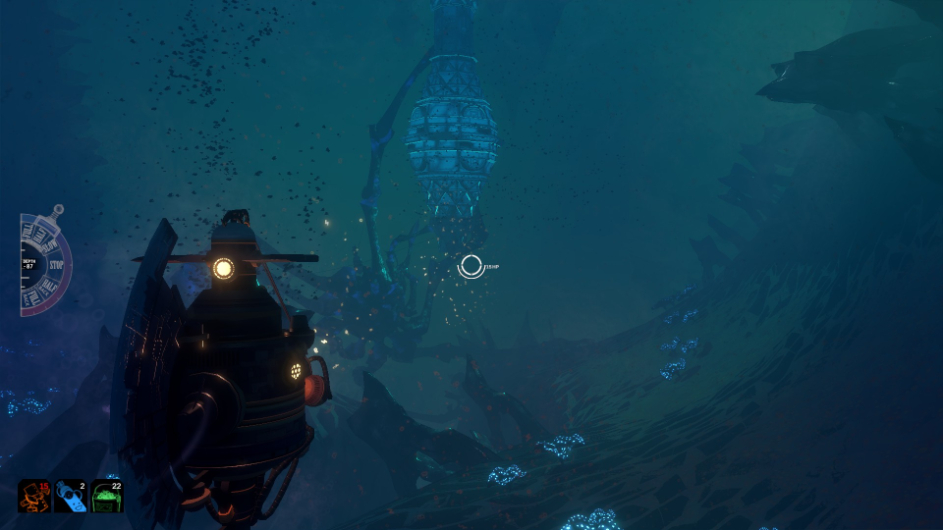
Not all of Diluvion’s gameplay is affected by the issues I have mentioned, and some elements are very good indeed. Most notably, the management side of the game is very strong in its own right. These elements take on the same style of play as games like FTL, requiring you to manage your crew within the sub, but also to manage the resources which you take on board. Crew management is important, as the actions your crew are performing can be the make or break factor in many situations. More weapons focus or pace can truly be a game changer, so using their skills wisely is a much needed talent. You also need to feed your crew, maintain weapons ammo and keep your vessel fuelled in order so succeed, so judging the stock you gather prior to a journey is critical to success. You don’t want to be a sitting duck when the pirates arrive. This adds to realism to the otherwise fantastical game.
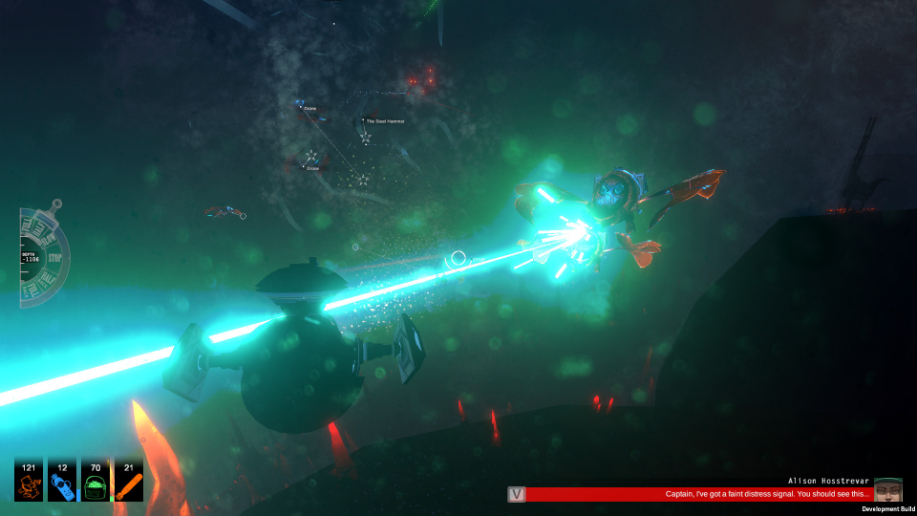
RPG skill elements provide each of your crew members with different, improvable talents too, meaning that the crew progress in the game as you do. Treasures found around the oceans can also help to improve these skills, strengthening your team and allowing you to venture on to much greater endeavours. Crew members are mere mortals however, and the decisions you make can truly be life or death ones for your companions. The oceans are harsh, and not everyone can survive… Your vessel can be upgraded in the long-term as well, with better hardware or a new model entirely. Sadly, the biggest and fanciest subs in the game are exclusive to its backers, but there are still some tidy upgrades to shoot for.
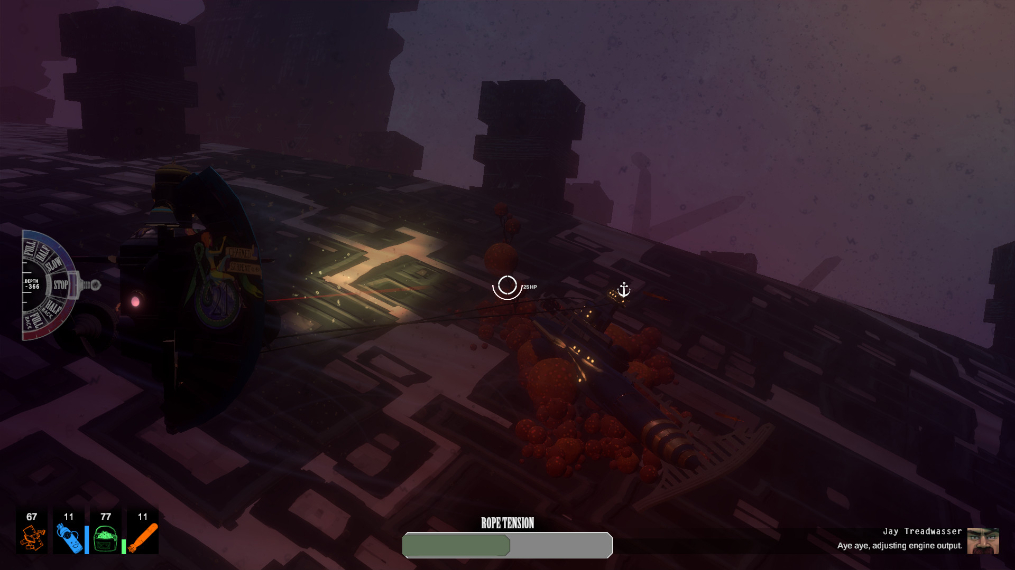
Diluvion almost comes at you in three different parts. The aesthetics, i.e. the visuals, sounds and story elements of the game, are fantastic. The give the game’s unique setting and ideas some real depth and draw you in from the word go. The 3D gameplay is a mixed bunch, with exploration being exciting but control, camerawork and other gameplay features falling short. The 2D gameplay however is great, with elements of strategy, RPG and management all involved. Had the whole game been designed in an FTL style, combined with its fabulous 2D visuals and story, it could have been a real winner. As it stands, the game still needs a little work towards perfection. There are certainly gamers who could enjoy the experience very much, even in its current state, but for the majority of interested parties I would suggest waiting on some updates or grabbing the game in a sale.
Diluvion was reviewed on PC via Steam


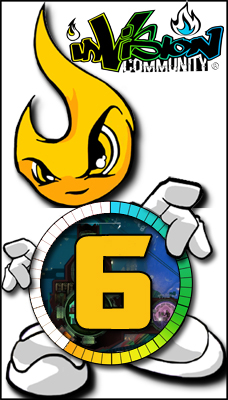






You must be logged in to post a comment.